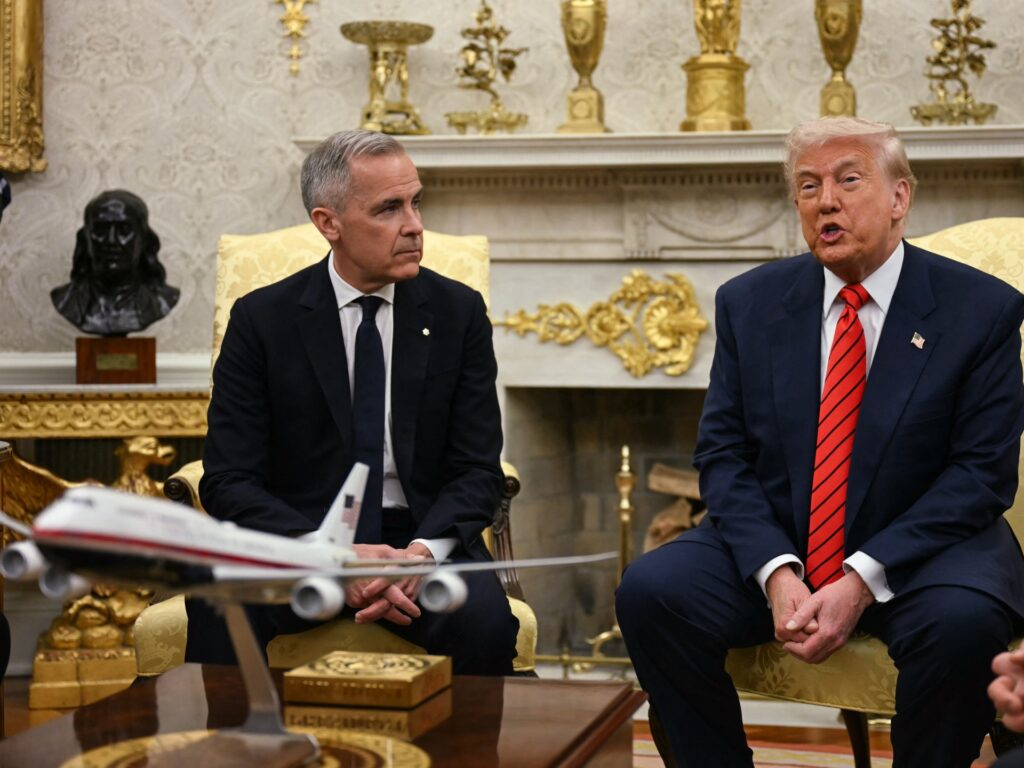
As Canada advances its new digital services tax targeting both foreign and domestic technology companies, U.S. President Donald Trump has retaliated by halting all trade discussions and threatening to impose additional tariffs on Canadian exports. The move has reignited trade tensions between the two neighboring countries.
On Friday, Trump took to his Truth Social platform, labeling the Canadian tax as a “direct and blatant attack on our country” and describing Canada as “a very difficult country to trade with.” He declared, “Based on this egregious Tax, we are hereby terminating ALL discussions on Trade with Canada, effective immediately,” and promised to announce new tariffs on Canada within days. U.S. companies like Amazon, Meta, Google, and Uber could face an estimated $2 billion in costs due to the tax.
This decision marks a stark shift from the recent cooperative phase in U.S.-Canada relations since Mark Carney’s election as Canada’s Prime Minister in March. It also underscores Trump’s continued use of trade as a pressure tactic during his second term.
Understanding Canada’s Digital Services Tax
The Digital Services Tax Act (DSTA) came into effect in June of last year, imposing a levy on tech companies’ revenues generated from Canadian users, regardless of their physical presence in the country. Initially proposed during the 2019 federal election under then-Prime Minister Justin Trudeau, the DSTA was approved in June 2024 and implemented shortly thereafter. The first payments are due by June 30, 2025.
The tax targets large technology firms with global revenues exceeding $820 million and Canadian revenues over $14.7 million, imposing a 3 percent tax on certain digital services revenues. Unlike traditional corporate taxes, this levy is based on gross revenue linked to Canadian user engagement. The tax applies to online marketplaces, social media platforms, digital advertising, and the sale or licensing of user data. Notably, the tax is retroactive, requiring payments on revenues since January 1, 2022.
U.S. Reaction and Trade Talks Suspension
The U.S. response has been swift and severe. On June 11, 21 U.S. Congress members urged Trump to pressure Canada to eliminate or suspend the DSTA, warning that it could set a dangerous precedent affecting global tax and trade practices. Trump echoed this sentiment in his Truth Social post, stating that the tax is a direct attack on American technology companies.
Trump announced the termination of all trade discussions with Canada and indicated that new tariffs would be imposed within a week. He criticized Canada for previously imposing high tariffs on U.S. dairy products and emphasized the U.S.’s economic leverage over Canada. Trump also announced plans to initiate a Section 301 investigation under the Trade Act to assess the DSTA’s impact on U.S. commerce, potentially leading to further punitive measures.
“We have all the cards. We have every single one,” Trump stated, highlighting the U.S.’s economic power over Canada.
Canada’s Response and Domestic Pushback
Canada’s government has maintained a diplomatic stance, with Prime Minister Carney’s office stating, “The Canadian government will continue to engage in these complex negotiations with the United States in the best interests of Canadian workers and businesses.” Finance Minister Francois-Philippe Champagne suggested that the digital tax could be negotiated as part of broader trade discussions.
Domestically, Carney faces pressure from Canadian businesses to pause the digital services tax, citing increased costs and potential U.S. retaliation. The Business Council of Canada has long warned that a unilateral digital services tax could harm Canada’s economic relationship with the U.S. and has called for its elimination to resume trade negotiations.
Historical Context and Global Implications
This is not the first time Trump has used tariffs as a negotiating tool with Canada. Earlier this year, he imposed tariffs on Canadian goods and energy resources, citing issues like fentanyl production and undocumented migration. These tariffs were temporarily paused but re-imposed in March.
Globally, several countries have implemented similar digital services taxes, including France, the UK, Spain, Italy, and Austria, with varying rates. The U.S. has opposed these taxes and engaged in negotiations through the Organization for Economic Co-operation and Development (OECD) to reach a global agreement on taxing digital companies.
The European Union is closely monitoring the situation, as digital taxation is a key concern in its trade talks with the U.S. Trump has threatened severe retaliation against similar measures from EU countries, and the EU has prepared a list of retaliatory tariffs in response.
As the deadline for high-stakes trade negotiations between the U.S. and the EU approaches, the outcome of the U.S.-Canada trade dispute could have broader implications for global trade dynamics.







